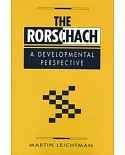This volume describes the foundational and functional competencies underlying "geropsychology," the area in professional psychology that focuses on the psychological and behavioral aspects of
aging. Officially, CRSPPP had designated "clinical geropsychology" as a proficiency in professional psychology in 1998, rather than as a "specialty." However, it may be considered a specialty
within the next few years due to the increase in demand for competent psychological services likely to occur in the near future as a function of the aging of the population within the United
States. Based in large part on the Pikes Peaks model for training in professional geropsychology, this book includes multiple chapter authors under the expert editorship of Victor Molinari. As
described in chapter 1, "the ultimate goal of geropsychology is to apply scientific findings about psychological aging to improve the lives of older adults". Psychologists interested in working
with older adults will find this volume both educational and aspirational.
Series in Specialty Competencies in Professional Psychology
Series Editors
Arthur M. Nezu and Christine Maguth Nezu
As the field of psychology continues to grow and new specialty areas emerge and achieve recognition, it has become increasingly important to define the standards of professional specialty
practice.
Developed and conceived in response to this need for practical guidelines, this series presents methods, strategies, and techniques for conducting day-to-day practice in any given psychology
specialty. The topical volumes address best practices across the functional and foundational competencies that characterize the various psychology specialties, including clinical psychology,
cognitive and behavioral psychology, school psychology, geropsychology, forensic psychology, clinical neuropsychology, couples and family psychology, and more. Functional competencies include
common practice activities like assessment and intervention, while foundational competencies represent core knowledge areas such as ethical and legal issues, cultural diversity, and
professional identification. In addition to describing these competencies, each volume provides a definition, description, and development timeline of a particular specialty, including its
essential and characteristic pattern of activities, as well as its distinctive and unique features.
Written by recognized experts in their respective fields, volumes are comprehensive, up-to-date, and accessible. These volumes offer invaluable guidance to not only practicing mental health
professionals, but those training for specialty practice as well.





















